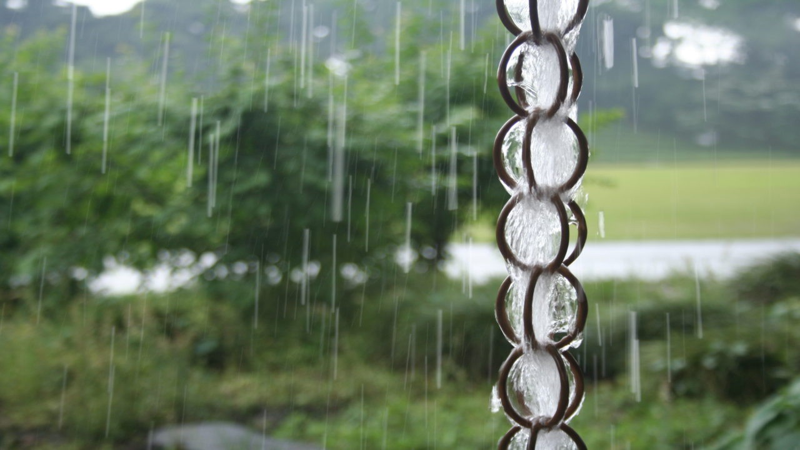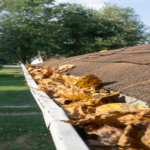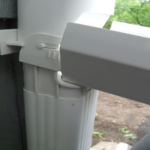Installing gutter guards is a great way to protect your gutters from leaves and debris. There are many different types of gutter guards available, so it is important to choose the right type for your needs.
Most gutter guards can be installed by the homeowner without the need for professional help. However, it is always a good idea to consult with a professional before beginning any home improvement project.
The first step in installing gutter guards is to clean your gutters. This will ensure that the guards fit properly and will also help to prolong their life.
Next, you will need to measure the length of your gutters and cut the gutter guards to size. It is important to make sure that the guards are cut slightly longer than the gutters so that they will overlap.
Once the guards are cut to size, you can begin installing them. Start at the end of the gutter and work your way up. Make sure that the guards are securely attached and that there are no gaps.
It is also a good idea to seal the guards with silicone caulk to further prevent leaves and debris from entering the gutters.
Can I install gutter guards myself?
Gutter guards can be installed by a homeowner as a do-it-yourself project, but there are some important considerations to take into account. First, it is important to select the right type of gutter guard for your home and climate. There are many different types and styles of gutter guards available on the market, so doing your research ahead of time is crucial. Second, you will need to take measurements of your gutters in order to purchase the correct size of gutter guards. Third, you will need to have the proper tools and materials on hand before beginning the installation process. Fourth, you will need to take your time and be careful while installing the gutter guards, as improper installation can lead to problems down the road. If you take all of these factors into consideration, you can successfully install gutter guards on your own.
Is there a downside to gutter guards?
There are a few potential downsides to gutter guards. One is that they can be expensive, so you’ll need to factor that into your budget. Another is that they require some maintenance – you’ll need to clean them periodically to prevent leaves and debris from building up and causing problems. Finally, gutter guards won’t completely eliminate the need for gutter cleaning – you’ll still need to do that at least once a year.
Do gutter guards work in heavy rain?
Gutter guards are designed to keep leaves and other debris from clogging gutters and causing water to back up and overflow. They come in a variety of shapes, sizes, and materials, and some are better than others at keeping gutters clear.
Gutter guards are particularly important in areas that experience a lot of rainfall, as heavy rains can quickly fill up gutters and cause water to back up and overflow. While gutter guards can’t completely eliminate the need for gutter cleaning, they can significantly reduce the frequency with which gutters need to be cleaned.
There are a few different factors to consider when choosing gutter guards, including the type of debris that is likely to clog your gutters and the amount of rainfall your area experiences. If you live in an area with a lot of trees, for example, you’ll want to choose a gutter guard that is effective at keeping leaves out. If you live in an area with heavy rains, you’ll want to choose a gutter guard that is designed to handle a lot of water.
Gutter guards are an important part of keeping your gutters clear and your home safe from water damage. If you live in an area with a lot of rainfall, make sure to choose a gutter guard that can handle the amount of water your area experiences.
Is it better to have gutter guards or not?
There are pros and cons to having gutter guards. Some people say that they are worth the investment because they prevent leaves and debris from clogging up gutters and causing water damage. Others find that they are not necessary and that they can actually cause more problems than they solve. Ultimately, it is up to the homeowner to decide whether or not gutter guards are right for their home.
What are the pros and cons of gutter guards?
There are a few pros and cons to gutter guards. On the plus side, gutter guards can help keep your gutters from getting clogged with debris. This can be a big help if you live in an area with a lot of trees, or if your gutters are particularly prone to clogging. Gutter guards can also help extend the life of your gutters, since they won’t be as exposed to the elements.
On the downside, gutter guards can be expensive. They also won’t do much to help if your gutters are already in bad shape. In addition, gutter guards can actually make it more difficult to clean your gutters, since you can’t just reach in and remove the debris by hand. If you do decide to get gutter guards, be sure to get ones that are easy to remove for cleaning.
What is the difference between leaf guard and gutter guard?
Leaf guard is a type of gutter guard that is installed over the gutter to keep leaves and other debris from clogging the gutter. Gutter guard is a type of gutter protection that is installed over the gutter to keep leaves and other debris from clogging the gutter.
What is the best option for gutter guards?
· Foam gutter guards: These guards are made of polyurethane foam and fit snugly into your gutters, preventing leaves and other debris from clogging them. They’re relatively inexpensive and easy to install, but they can be susceptible to mold and mildew growth.
· Mesh gutter guards: These guards are made of a weather-resistant mesh material that covers your gutters and allows water to pass through while keeping debris out. They’re more expensive than foam guards, but they’re also more durable and effective.
· Brush gutter guards: These guards are made of bristles or nylon brushes that fit snugly into your gutters and allow water to pass through while keeping leaves and other debris out. They’re more expensive than foam guards, but they’re also more durable and effective.
· Heated gutter guards: These guards use electricity to heat the gutters and prevent ice and snow from accumulating on them. They’re more expensive than other types of guards, but they’re also the most effective at preventing gutter damage during the winter.
Conclusion
There are many different types of gutter guards available on the market, so it is important to do your research to find the best option for your home.
Installing gutter guards is a relatively easy process, but it is important to follow the instructions that come with the product to ensure a proper fit.
Gutter guards can help to prevent leaves and other debris from clogging your gutters, which can save you time and money in the long run.
















